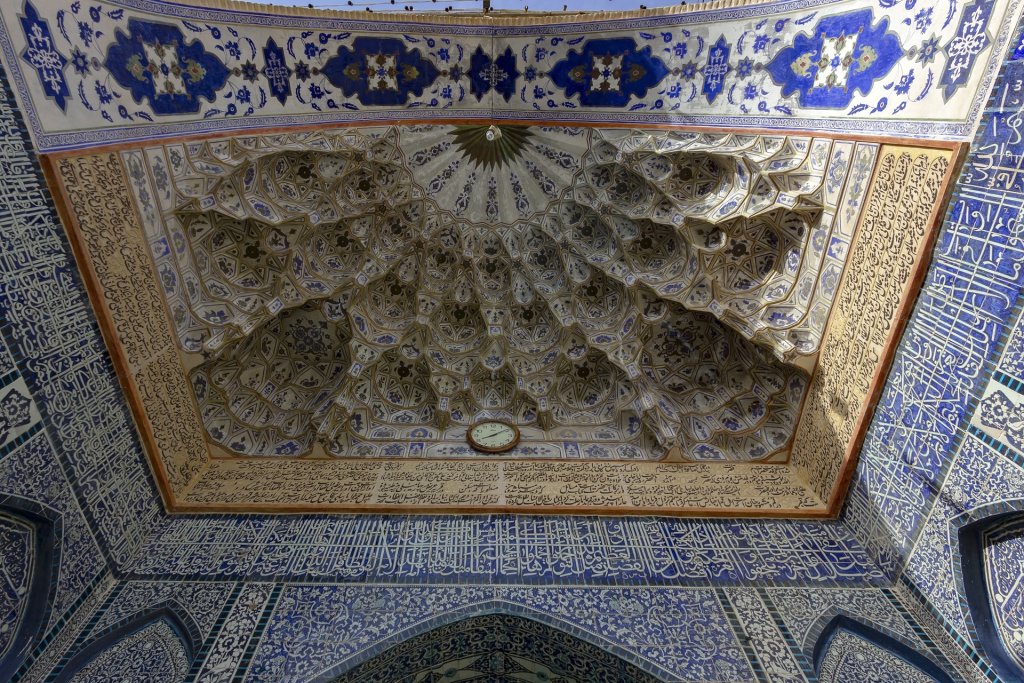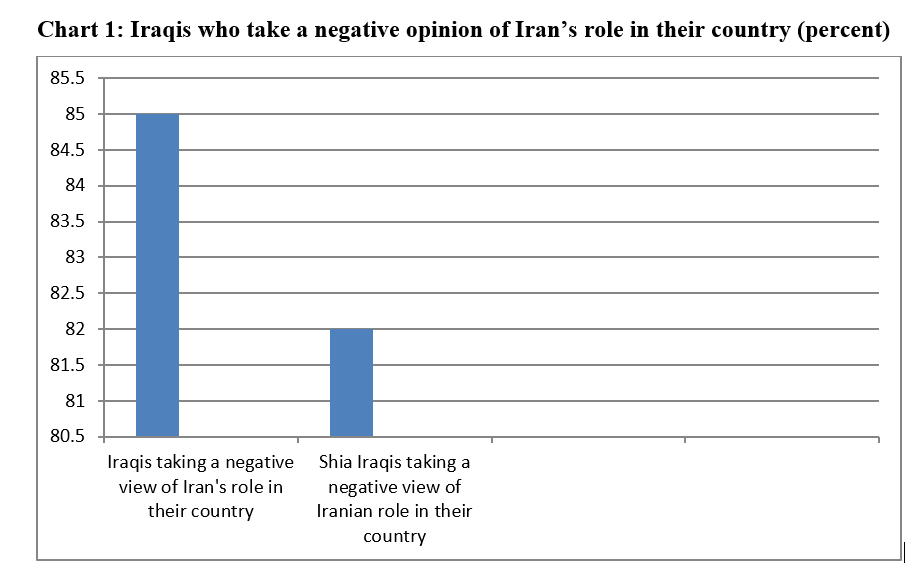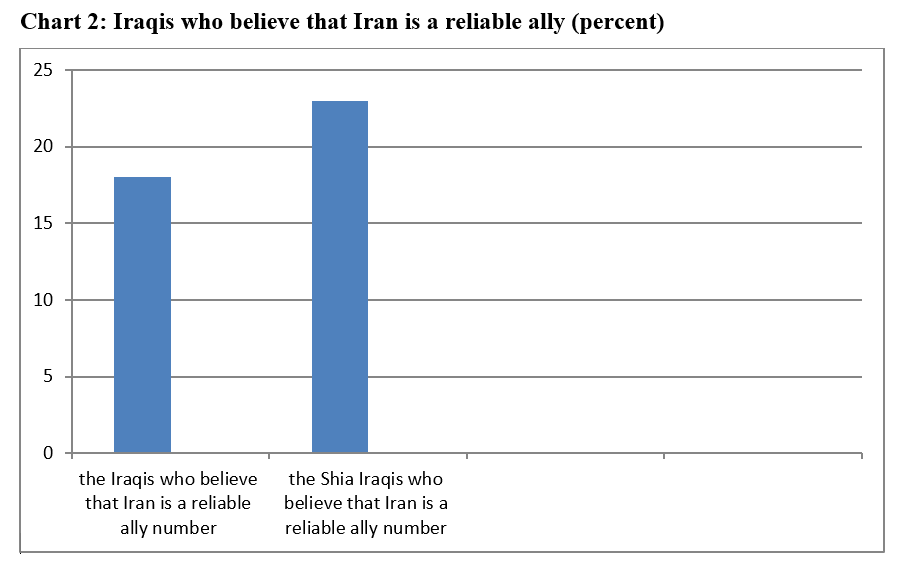
Introduction
Iran not only has religious objectives in Iraq but also geopolitical interests. Iran seeks to export the Iranian revolution to Iraq. At the same time, Iraq provides Iran geopolitical advantages that help increase Tehran’s regional clout. After the overthrow of Saddam Hussein by the US in 2003, the influence of Iran in Iraq has increased dramatically. However, recently, Iran has lost its popularity even among the Shia communities in Iraq, who prefer an independent Iraq and oppose Iranian involvement in Iraqi internal affairs. The objective of this piece is to demonstrate the changing Iraqi perceptions of the Iranian presence in Iraq and the main aspects of this change. Iraqis’ attitudes towards the Iranian policies in their territory are important since they determine the weight of Iran in Iraqi politics. This, in turn, has a significant influence on Iran’s role in its neighborhood.
Iranian Interests in Iraq
Since the US invasion of Iraq in 2003, Iran has been supporting the Shia communities, viewing them as a counterbalance against the domination of the Iraqi state by pan-Arab or nationalist segments of the Iraqi population. Iran’s interest in Iraq originates not only from Tehran’s desire to serve its own interests and keep Iraq weak but also from the religious philosophy of guardianship of the Islamic jurist (vilayat-e faqih), which aims to spread the Islamic revolution to other Shia countries, including Iraq. According to this concept, the Supreme Leader of Iran is the representative of the 12th Imam for the whole Shia population (i.e., in the world). This means that Qom, the Supreme Leader’s religious center in Iran, is regarded as the supreme authority for the entire Shia. Thus, Qom challenges the Shia religious stronghold in Najaf, Iraq.
Iran also has geopolitical interests in Iraq, which provides a connection land to its partners in Lebanon and Syria. This strategic asset has become all the more important since the outbreak of the Syrian conflict in 2011 and the threat by ISIS since 2014. Iran has further interests insofar as the USA and its Western allies no longer have a major influence in Iraq, and Tehran also wants to reduce the influence there of regional powerhouses Turkey and Saudi Arabia. Additionally, Iraq provides a sizeable market for Iranian goods and services, including power and gas supplies.
Changing Iraqi Perceptions about the Iranian Involvement in Iraq
Iran had hoped that its Shia political system, as the first model of governance in the Shia world, would serve as an example for other Shia communities, including Iraq. However, despite the dominance of the Shia community in the rule of Iraq after 2003, the Iraqis have not chosen an Islamic political system based on the Iranian model. The non-religious model of governance in Iraq even poses an existential threat to the Iranian political system.

Many Iraqi Shiites have developed a negative opinion of Iran’s involvement in Iraq, and in recent years, Iran has lost its capacity to serve as an example for Shia political Islam there. The latest public opinion polls in Iraq demonstrate that more than 85 percent of Iraqis and 82 percent of the Shia take a negative view of Iran’s role in their country (chart 1). Similarly, the Iraqis who believe that Iran is a reliable ally number just 18 percent overall and 23 percent of the Shia population (chart 2). Following the rise of ISIS in 2014, Iranians aided Baghdad in fending off the jihadist assaults, bolstering a positive Iranian image in Iraq, and Iran-affiliated armed groups have been fighting against ISIS within the framework of the Popular Mobilization Forces (PMF). After 2020, however, internal disagreements within the PMF led to a splitting off of some PMF brigades, curtailing Iran’s struggles to keep the Iraqi Shiite groups united. Thus, while a public opinion survey in 2017 found that almost 70 percent of Iraqis viewed Iran positively, the same public opinion poll in 2020 found Iran’s popularity to have declined dramatically, to 15 percent. Even though some Iranian officials acknowledge that Iran has lost some of its soft power in Iraq because of its attempts to export the revolution there, the revolutionary segments of the Iranian state insist on hardline policies in Iraq, as well as regionally.

Iran has tense relations with some Shia communities in Iraq. Influential Shiite cleric Muqtada al-Sadr, who espouses Iraqi nationalism, dislikes Iranian influence in Iraq. Al-Sadr supports an independent Iraq under the banner of “neither Eastern nor Western” involvement in Iraq, which equates to “neither Iran nor the USA” and favors an Iraq that is militarily independent of Iran.
An important point of contention between the Iran-backed Shia communities and al-Sadr is that the latter wishes to develop Iraq’s relations with the Arab states, including Saudi Arabia, which competes with Iran for influence in the region. After the US-led occupation of Iraq in 2003, Sadrist forces, with the support of Iran, were one of the most active groups that fought US troops. During the past decade, however, al-Sadr has changed course and become a nationalist figure. Since the assassination of Iranian Quds Force commander Qasem Soleimani in 2020, al-Sadr has increased his criticism of Iran. The main reason for this change could be to echo the wish for less Iranian influence in the country among Iraqis, who generally want to see a stronger and more independent government. Similarly, former Shiite Iraqi Prime Minister and Secretary General of the Shiite Dawa Party Nouri al-Maliki was critical of Iranian activities in Iraq, stating that “opposition to the US–Israeli–Saudi axis does not permit Iran to interfere in Iraq.” Another influential Iraqi cleric not on good terms with the Iranian leadership is Grand Ayatollah Ali al-Sistani. Al-Sistani is at loggerheads with Iran’s top cleric Ali Khamenei over the composition of the PMF in particular.
The launch of the “maximum pressure” campaign against Iran by the Trump Administration in 2018 increased the possibility of turning Iraq into a battleground between Washington and Tehran, raising concerns in Iraq. Moreover, the rise of illegal and extrajudicial activities by some Shia communities allied with Iran has raised question marks about the Iranian influence in Iraq. The failure of the Iran-supported government in Iraq to rule the country dealt another blow to Iranian influence there, inducing Iraqi protesters demanding a reduction in Iranian influence to attack its consulates in Karbala and Najaf in 2019.
Conclusion
In short, Iranian influence in Iraq has had its ups and downs, but it has recently been declining due to the fact that Iraqis as a whole want their country to take an independent course. Even the Shia community in Iraq objects to the Iranian involvement in Iraqi internal affairs. Over the years, pro-Iranian groups in Iraq have changed their positions towards Iran’s presence in their country. An important Shiite cleric Muqtada al-Sadr adopted Iraqi nationalism, parting his ways with Iran. By the same token, former Shiite Iraqi Prime Minister and Secretary General of the Shiite Dawa Party Nouri al-Maliki disliked Iranian policies in Iraq. Another influential Iraqi cleric Grand Ayatollah Ali al-Sistani has not been on the same page over the composition of the PMF.
It goes without saying that waning Iranian sway poses a threat to its objective to contain the American influence in Iraq and to use the Iraqi land corridor to link to its proxies in Syria and Lebanon. Potentially, a diminished Iranian involvement in Iraq could also limit its room for maneuver in the competition with its regional rivals Saudi Arabia and Turkey. This, in turn, would limit Iranian influence in the region.

Doç. Dr. Mehmet Bardakçı
Associate Professor Mehmet Bardakçı is an academic in political science and international relations. His research areas include, among others, international relations of the Middle East, EU Neighbourhood policy and Turkish foreign policy, on which he has published widely. Bardakçı, who received his BA in international relations from Bilkent University and his PhD in political science from Duisburg-Essen University, has taught at various universities in Turkey and abroad. One of his recent works, which he co-authored and based on an extensive field study across Turkey, is the book on religious minorities in Turkey: Mehmet Bardakçı, Annette Freyberg-Inan, Olaf Leisse and Christoph Giesel, Religious Minorities in Turkey: Alevis, Armenians, Assyrians and The Struggle to Desecuritize Religious Freedom (Basingstoke: Palgrave, 2017).
To cite this work: Mehmet Bardakçı, “Iran and the Iraqi Shiites: A Cyclical Relationship”, Panorama, Online, 23 February 2023, https://www.uikpanorama.com/blog/2023/02/23/mb/
Copyright@UIKPanorama All on-line and print rights reserved. Opinions expressed in works published by the Panorama belongs to the authors alone unless otherwise stated, and do not imply endorsement by the IRCT, Global Academy, or the Editors/Editorial Board of Panorama.

